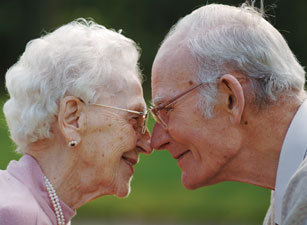As
Christians, we believe Jesus is both human and divine at the same time, the
Great Paradox. (Paradox Sept 2014 post) If your thoughts are
similar to mine, I place Jesus on the divine pedestal, the untouchable miracle worker,
the savior, putting dimensions into which I cannot relate to His humanity. I fail to put the human and the divine in Jesus
together… and I fail to find it in myself.
Here in lies my problem; I distance Jesus beyond relational, inserted into a
hierarchical model, He with the upper hand delivering to lowly me. We have a dysfunctional
relationship. We have more of an
agreement to terms … terms I always fail to live up to and unfortunately His
position elevates to be unapproachable. If
this configuration existed with my spouse or dear friends, our relationships
would be unhealthy. When I consider my friendships and those I
love dearly in relationships, neither I nor those in relation have an upper
hand. We share without an element of
power to create genuine, sincere bonds.
So … where does this leave my relationship with Jesus, the Great Paradox?
Tuesday, July 28, 2015
Thursday, July 23, 2015
The Bible and Prayer
by Fred Vilbig
When St. Augustine was in Milan at the time of his conversion, he heard someone say, “Tolle, lege,” or in English, “Take, read.” He went to his room, opened his Bible, and read, “It is the hour for you to awake from sleep …. [P]ut on the Lord Jesus Christ, and make no provision for the desires of the flesh.” Rom. 13:14-15. And he never turned back.
Early in his ministry, St. Francis asked a priest to randomly open the Gospels three times and read the first verses that he saw. They were Matthew 19:21, Luke 9:3, and Matthew 16:24, basically telling him to sell what he had, give everything to the poor, and follow Jesus. And that’s what he did … for the rest of his life.
Many saints have had similar experiences where God has spoken to them through the Bible.
Tuesday, July 14, 2015
Sea Change
by Fred Vilbig
I feel compelled to write an article about the Supreme Court’s recent decision on same-sex “marriage”, Obergefell v. Hodges.
It is not because I believe the decision was profoundly wrong for moral reasons, which I will assert to anyone. The Court has made and will continue to make bad decisions. See, Dred Scott v. Sandford.
It is not because the opinion (which I’ve admittedly only read once very quickly) reads more like a college sociology paper than a legal opinion. Legal opinions start by analyzing prior law and reach a conclusion. College sociology papers start with a stated position, and then seek to justify it. The Supreme Court’s opinion reads a lot like the latter.
Rather, I feel compelled to write about the decision’s basic holding and the threat it poses to faithful Catholics and other faithful Christians. What the Court holds is that people of the same sex have a constitutional right to marry. The reverse of this statement is that it is unconstitutional to deny a person the right to marry someone of the same sex. This a sea change.
Wednesday, July 1, 2015
a footnote ...
"You’ve never had my fried chicken,” my excited great-aunt
Mary proclaimed. “See you. Sunday. You’ll taste the best fried chicken in
town!”
Our phone conversation concluded. Aunt Mary was wrong. She did serve the best fried chicken in town. However, she’d forgotten she’d hosted me the
previous Sunday for her chicken dinner.
Little did I know as a seventeen year old, new to Salina, Kansas, alone
working the summer before college for the State grain inspection department
that Aunt Mary showed signs of Alzheimer’s or dementia beginning.
The disease progressed as my graduate years emerged from
undergraduate work to cancer research at KU Med. As I passed through Salina, I’d stop to visit
Mary as often as I could. Months often
lapsed between my visits to her Senior Living Center. Mary struggled to recognize me. I could understand how she might not recall
me because I was not part of her long term memory having only grown to know her
that summer before entering college. She
lived in a simple grandma house with a postage stamp yard. Widowed for many years, she always gave to me
so generously with several Sunday meals.
Despite her disease, I was determined to communicate with her in some
meaningful way even if she could not recognize me.
I convinced a retiring KU professor to allow me to enroll in
a graduate “Psychology of the Aging” class though I had completed no
prerequisites for it nor did it have anything to do with my biochemistry
research. I enjoyed the class discovering, by far, the
vast majority of seniors live productive, independent lives … but what about my
Aunt Mary? During one particular class
pertaining to dementia, clinicians discussed various effective techniques such
as music therapy, games, crafts, etc. used to steer clients away from episodes in
which they described communicating through dreams or in silence with a dead
spouse, friends, children, siblings, a foe or two and even God. An “*” appeared referencing a footnote at the
bottom of the page in our authoritative text.
Though quite common in this aging population, it was recommended that diversion
using the techniques above be attempted for the benefit of the individual. Whose
benefit? Mine, the therapist or Aunt
Mary’s?
I expected more on this topic as I flipped wildly through
the remaining pages. Nothing … simply a
footnote … and this situation was the entire reason I enrolled in this
class. So consuming, I set out to
discover what I could about these “imaginings.”
I found little until I stumbled upon an insignificant paperback
addressing birth and its similarities to later life. Inspired, I worked through the night deriving
parallels in a theory. Morning arrived
quickly. Soaked in a torrential rain, I
dashed to my professor’s office, 7:30 am, and begged to address the footnote from days earlier. “I only need 10 minutes.”
“It’s my last day. I
have critical material to squeeze in.
Several students have questions.”
He looked kindly upon my drenched frame.
“You’re not even a credible psych student. It isn’t going to happen.”
Discouraged in the early hour, I listened to my professor
cram two hours of final material. With
fifteen minutes remaining, he paused abruptly.
“Normally I’d entertain questions at this time, but one of your
classmates has brought some interesting material to my attention and I think it
worthy to see.” Without salutation, he
humbly turned the small auditorium over to me.
On a chalkboard on wheels, I sketched the large graph below which I had
adapted from the book I’d come across about birth and life after.
Our lives do not follow the clean lines or curves I’ve shown
in this graph. For example, there are young lives
lost far too soon. (In fact, all
dimensions of my life follow the yellow squiggles, anything, but straight.)However,
most folks do experience lives on some average as shown. From conception to birth, an infant develops
to leave the comfort of mother’s shelter to life in a new world unknown to the infant. As Aunt Mary aged, her
independence, invincibility, control, physical health (and many more 'youthful' characteristics) diminished. While at
the same time, her spirituality,
relationship to the Lord, communicating in a unique way expanded … and … in her
new relationship it became more personal, more difficult for me to understand
or to participate other than to observe and to listen, perhaps similar to Peter’s, James' and John’s reactions at the transfiguration. “Rabbi, how good it is for us to be here! Mk 9:5. One must surrender “control” or invincibility to enter the new
relationship. On many occasions, staff
would mention Mary displayed a certain peace after I’d visit … and all I did
was listen and ask the occasional question to foster our conversation. Mary’s experience and many like her may be
more significant than a footnote!
For anyone who has lost, I found this poem to be
beautiful. Its words encouraged me to
write this reflection.
My Beloved by Heather Heath
Reed, … best read slowly.
He had come home to die
in his own bed,
surrounded by his books and flowers,
his sweetheart by his side.
It was always understood
that she would die first,
it was non-negotiable, she’d
said,
subject closed.
Now,
he was asking her to let him go,
and
she felt cheated and afraid.
Watching
the night sky fill with stars,
he
become the consoler,
his
work nearly done, hers just beginning.
Bit
by bit, he helped her remember
their
lifetime together,
spirited
soulmates,
raising
kids and traveling the world
mostly
with laughter, always with love.
while she slept beside him.
Later, she would awaken
to the scent of yellow roses.
Subscribe to:
Posts (Atom)




